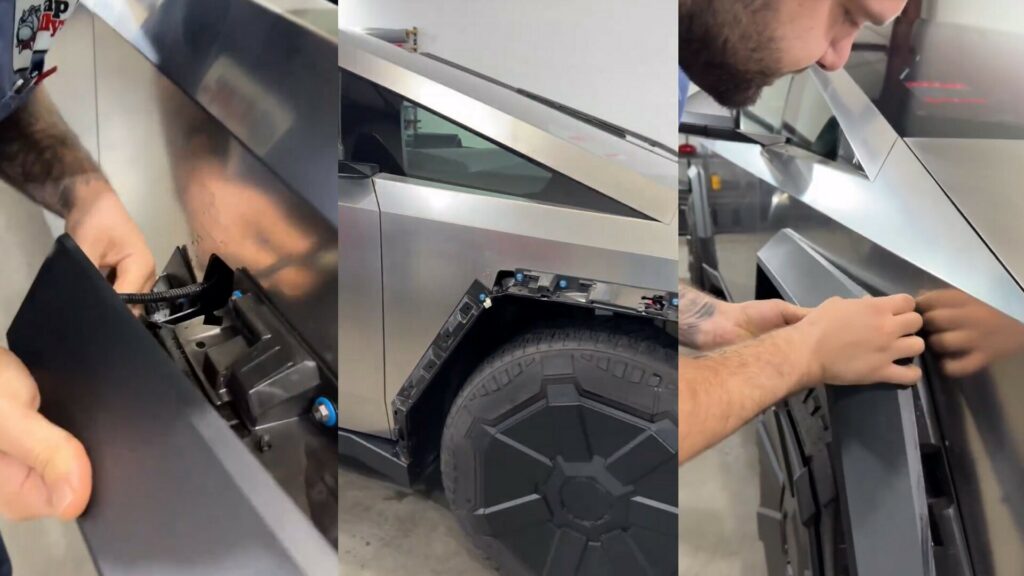If there’s one glaring problem with a stainless steel car it’s that painting it isn’t very practical. In the case of the Tesla Cybertruck that means that using a wrap is the only way to get a different color aside from silver. Now, one wrap company has found that the fender flares pops off quite easily making the job just that much simpler.
Wrap Bullys has been in business for some 15 years and recently had its first crack at wrapping a Cybertruck. While it hasn’t revealed the final product it has taken a little time to document its pre-wrap findings. That process revealed that the fender flares on all four corners pop off about as simply as one could ask for.
One technician on video simply grabs the underside of the front of the fender and gently tugs it until it begins to pop off. He follows that same process up and over the top of the fender, onto the rear, and bob’s your uncle, the fender comes loose. Once the camera is disconnected the entire piece can come away from the vehicle.
Read: Tesla Cybertruck Hits A Snowblock And Needs A Ford To Get Out
A plastic structure featuring seven bolts sits beneath the outer fender cover but it’s unclear whether or not the shop intends to remove it as well. From the short video posted to Instagram, it appears as though there would be room to terminate a wrap in a way that would hide that point without unbolding the underlying fender structure. Either way, this feature is sure to make the Cybertuck just that much easier to work with for wrap shops.
While some might be concerned about the ease with which these fenders come off, it’s worth noting that many vehicles, especially ones from Tesla, feature fenders that are removed with similarly low effort. In a sea of vehicles that come with more and more plastic body cladding it’s not unusual to see something like this. Making a wrap job a little less labor-intensive makes it sound a little cheaper in the end too.
How will it handle off-road courses with obstacles that contact the fender? That has yet to be seen but for now, it appears that in most cases it would depend on how movable that obstacle on the trail is.




